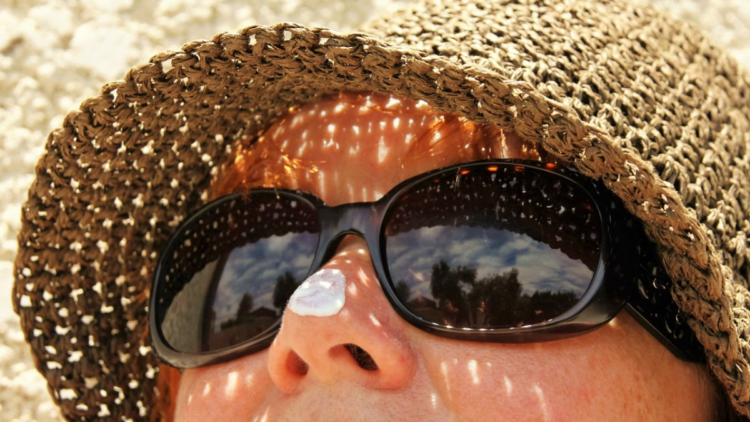As the weather starts cooling down in the fall, many people try to retain their tans by not wearing sunscreen.
But there’s a harsh reality – ultraviolet (UV) rays can damage your skin even when the sun isn’t shining as much.
Dr. Joshua Smith, a Missouri State University expert in how UV rays affect our skin, explains the importance of taking care of your skin – no matter the season or your age.
The risks
There are three types of UV rays: A, B and C.
“UV C tends to get stuck in the ozone and is not as much of a problem,” said Smith, interim department head and professor in the department of biomedical sciences. “But UV A and B can come through the clouds and UV A can sneak through the glass of your car windows.”
UV A and B are a dangerous duo.
“UV A is the main culprit for the aging sun exposure can cause,” Smith said. “And UV B is responsible for the skin’s change in color as it damages the cells.”
Smith notes that shifts in skin color after being outside is not a good sign.
“When your skin changes pigmentation after being outdoors, it’s a response of UV light damage,” he said. “If you’re properly applying sunscreen, you should not see a color change.”
Debunking sunscreen myths
Social media is the source behind many myths about sunscreen chemicals and their link to cancer and/or disease. As such, many people believe only natural agents should be applied on your skin.
But according to Smith, most natural sunscreens are not strong enough to provide sufficient protection.
“The only real risk associated with sunscreen comes from allergies and skin sensitivities from certain ingredients,” Smith said. “Even so, the worst thing that can happen to the skin is a rash or irritation.
“I haven’t found any scientific research or evidence that shows an increase in cell growth from applying sunscreen.”
Sun damage isn’t seasonal
During fall and winter, temperatures drop and there’s less sunlight. This makes it seem that sunscreen is not necessary.
But in reality, UV rays reflect off shiny things like water, sand and snow.
“Both the American Cancer Society and the American Society for Dermatologists recommend if you’re going to be outside at any time of the year, then you need to wear sunscreen,” Smith said. “The more you wear sunscreen, the less you’ll age.”
He suggests a few things to keep in mind when purchasing and using sunscreen.
“If your sunscreen doesn’t have an SPF of at least 30, it’s not good enough,” Smith said. “Additionally, you should reapply at least every two hours.”
Learn more about biomedical sciences


Leave a Reply